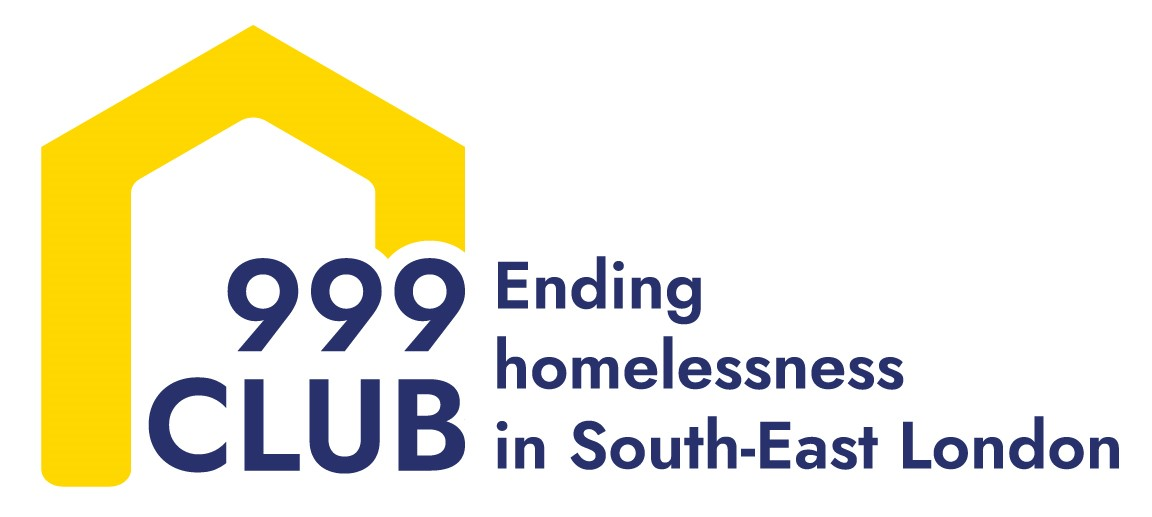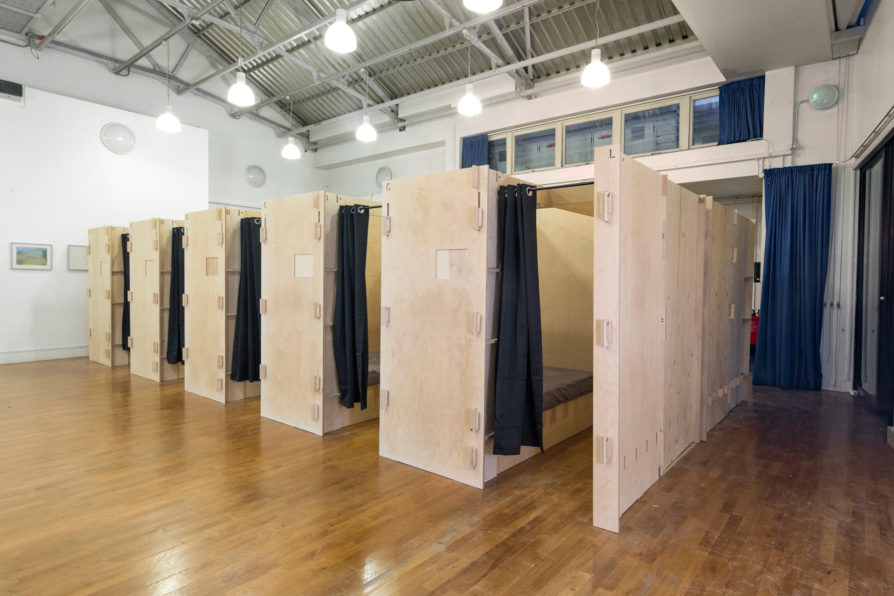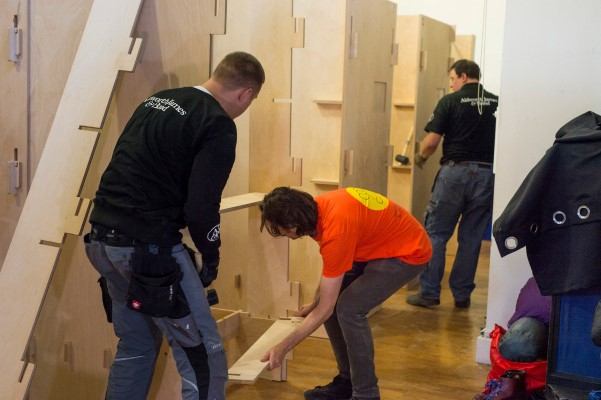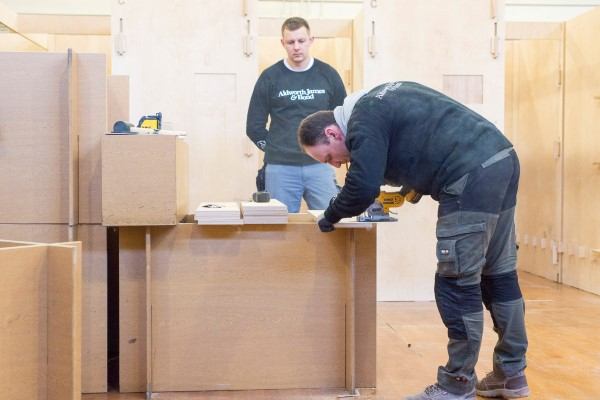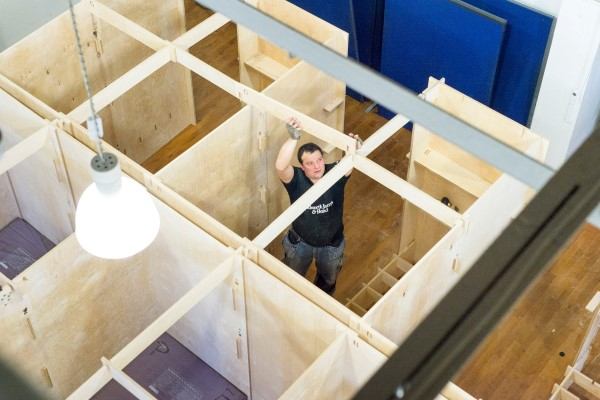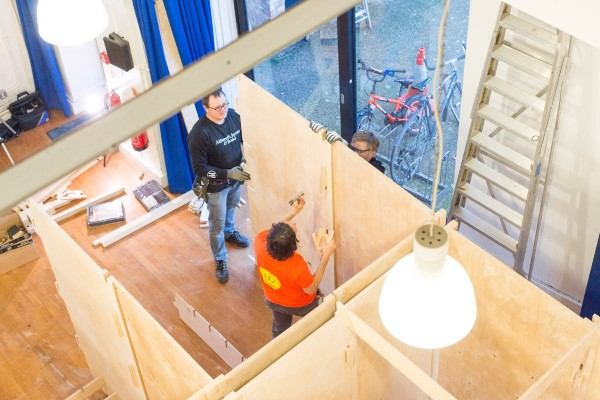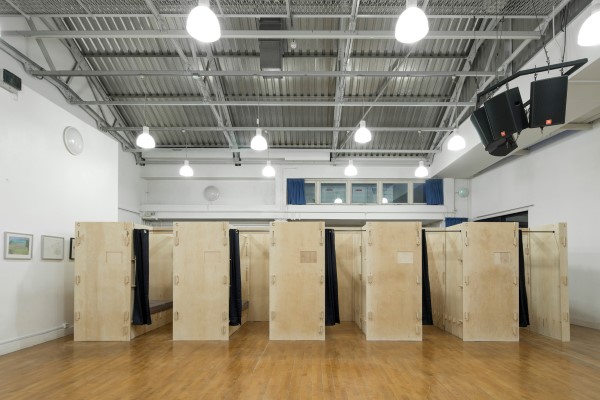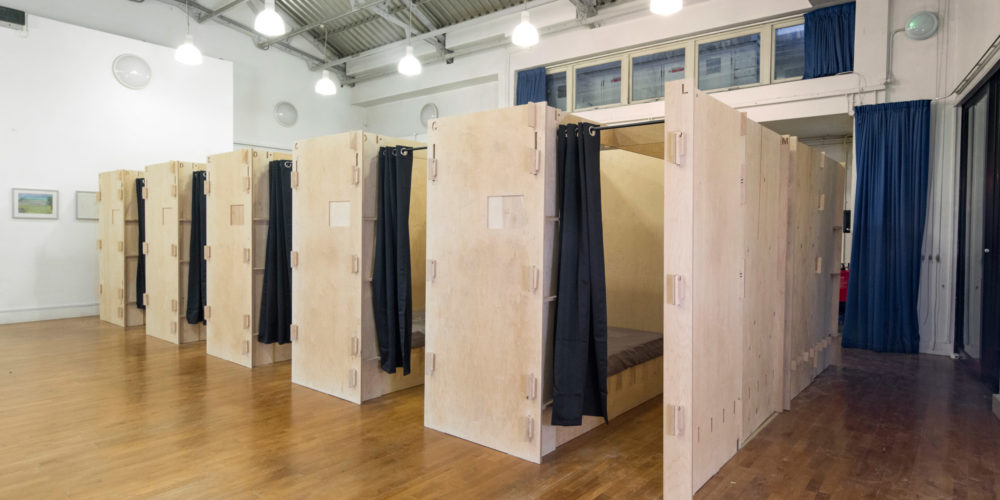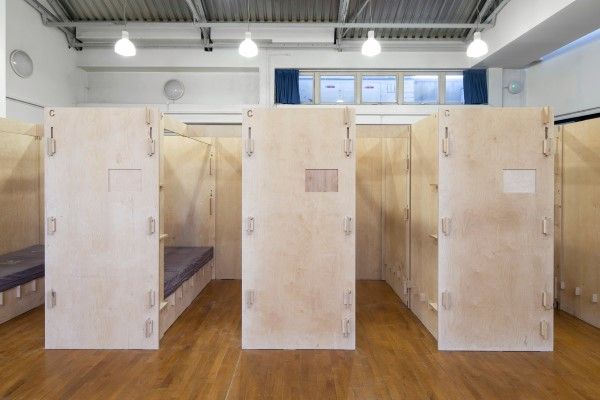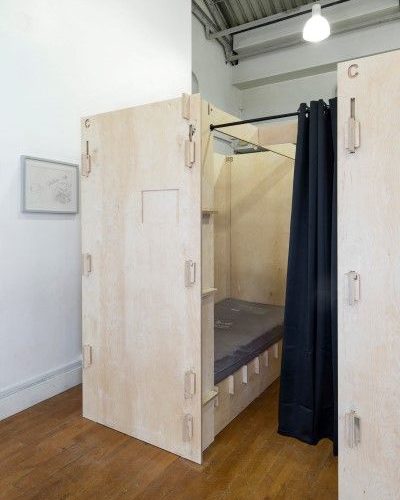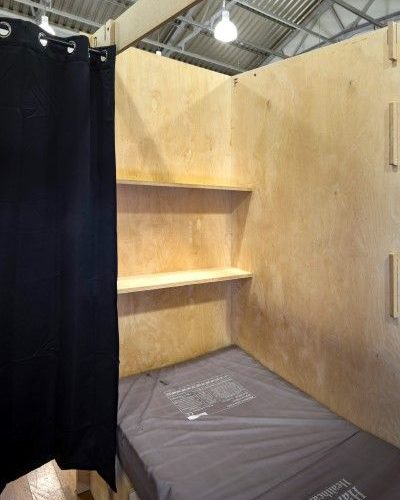An innovative system of indoor sleeping pods for homeless people was launched yesterday [Thursday] at the 999 Club’s night shelter in Deptford.
The interlinking structures provide privacy and added security to those using them as temporary bedrooms in the charity’s emergency shelter.
The pods were designed by architects Reed Watts, who were selected in an open design competition held by the charity Commonweal Housing in 2017.
Prompted by research into the lives of migrant workers living in tent encampments in London, the competition sought to find a deliverable model for reusable, short-term accommodation that could be installed in halls and empty and underused buildings.
The pods stand 2.1 metres high, 2.1m in length and 1.9m wide, are made of 18mm thick, fireproof birch plywood and have privacy partitions with a raised platform for a mattress that acts as both a bed and a seat as well as storage space for personal belongings. Two of the side panels are shared with the adjacent pod, and a curtain on a rail can further close off the personal space at night-time.
Assembling the sleeping pods
A prototype was built earlier this year and tested out at the 999 Club and Housing Justice in Hillingdon, West London.
The initial model was then refined in size and the raised mattress platform was added, to create the latest version, 10 of which were built and installed yesterday.
Fashion designer Irene used one of the prototype pods when she slept at the 999 Club shelter this summer. She has since found permanent accommodation.
She said: “It was much better for me to sleep in the pod, rather than the main hall. It’s tidy, private, warm and it was my own space.”
Tim Fallon, Chief Executive of the 999 Club, said: “We are excited about launching these sleeping pods, which are the first of their kind in the capital. They will provide very welcome privacy and a quiet space for people who come to our night shelter at their most vulnerable time.”
The completed sleeping pods installed in the 999 Club’s night shelter.
The pods have been designed to be practical and affordable to make and easy to assemble with no tools. Reed Watts and Commonweal Housing will release the design on a Creative Commons basis so they can be replicated more widely.
Matt Watts of Reed Watts said: “Having worked with 999 Club, Housing Justice and Commonweal over the past months, we’ve been profoundly inspired by the work they do and the impact that the night shelters can have on the lives of homeless people. By releasing the design as a royalty-free Creative Commons licence we hope to give as many organisations as possible an opportunity to use the pods where there is a need for short-term shelter.”
Ashley Horsey, Chief Executive of Commonweal Housing said: “We are really excited that the 999 Club is going to be using more pods and we’re looking forward to further assessing the impact they have on people using the shelter.
“Without collaboration with shelters like the 999 Club we would not be able to test the pods as a temporary form of accommodation, so we’re grateful to be working with them, and looking forward to seeing the results.”
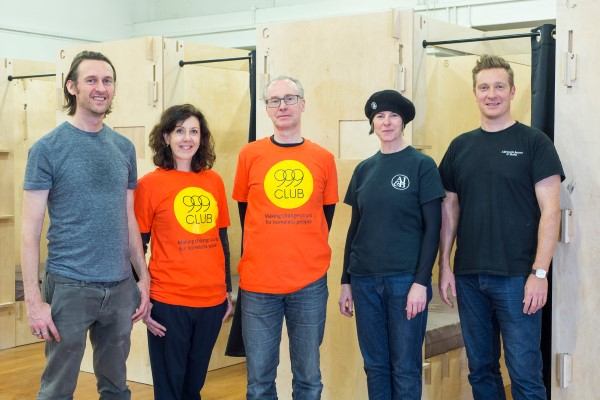
(L to R) – Matt Watts (Reed Watts architects), Lesley Walker (999 Club), Tim Fallon (999 Club), Jo Cooksley (Aldworth James & Bond) and Tim Hill (Aldworth James & Bond)
Deptford-based firm Aldworth James & Bond fabricated the panels pro bono, with materials sponsored by Specialised Panel Products.
Tim Hill, Creative Director at Aldworth James & Bond, said: “We were thrilled to be approached by Reed Watts Architects for the sleeping pods project at the 999 Club. It was great to have the opportunity to offer our digital fabrication skill for a charity which does such inspiring work in our local community.
“The team at Aldworth James & Bond is committed to delivering the pods in time for Christmas to help get this impactful project delivered at a crucial time of year. We can’t wait to help install the 10 modular sleeping pods at the 999 Club and look forward to seeing their wider reaching impact as they are rolled out across in other locations.”
All photos by Cameron Maynard
